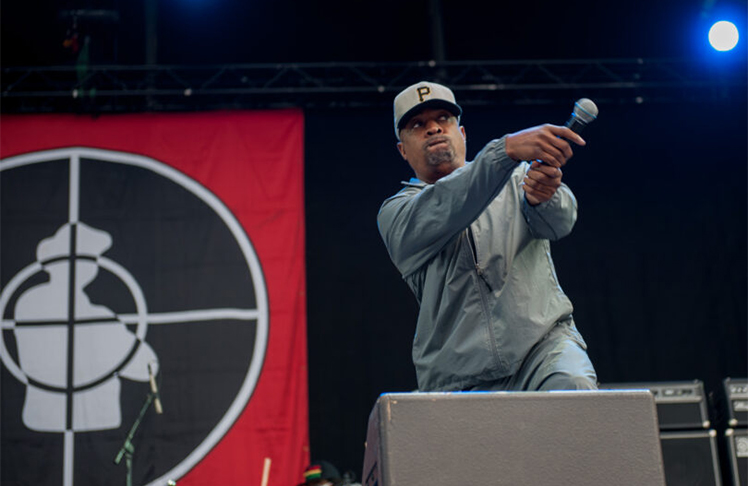
By Stacy M. Brown, WI Senior Writer
Chuck D, the legendary frontman of Public Enemy, has long emphasized the power of visuals in shaping understanding. “People listen with their eyes; they don’t really listen with their ears,” he has said, noting the weight of images emanating from the Los Angeles County wildfires. That perspective has taken on new significance as Public Enemy’s protest anthem, “Burn Hollywood Burn,” trends again during one of the worst wildfire disasters in Southern California history.
The song, released over three decades ago on the group’s iconic album “Fear of a Black Planet,” features Ice Cube and Big Daddy Kane and critiques systemic racism, exploitation, and the lack of authentic Black representation in Hollywood. Lyrics such as “Make our own movies like Spike Lee / ‘Cause the roles being offered don’t strike me / As nothing that the black man could use to earn / Burn Hollywood, burn,” were intended as a call for empowerment, not destruction.
With wildfires devastating Los Angeles, some social media users have appropriated the song, misusing it in reels and videos depicting the destruction. Chuck D has spoken out, urging fans to respect the song’s original intent and avoid connecting it to the ongoing tragedy.
In a statement and in previous interviews, Chuck explained, “‘Burn Hollywood Burn’ is a protest song,” referencing its roots in the Watts Rebellion of 1965. He credited DJ Magnificent Montague’s famous phrase “burn, baby, burn” as inspiration, noting its origin as a rallying cry against inequality. He added, “We made mind revolution songs aimed at a one-sided exploitation by [an] industry. The song has nothing to do with families losing everything they have in a natural disaster.” Chuck concluded with, “Learn the history. Godspeed to those in loss.”
Fans in the comments supported his plea. According to The Root, one commenter wrote, “I don’t know how anyone that listens to your music could have misconstrued that.” Another added, “As an L.A. native, we know that song wasn’t a literal desire to burn Hollywood down. You were expressing disdain for Hollywood elites. We gotcha back.” Chuck reiterated his request, writing, “Please don’t use our song on your reels and pictures of this horrifying natural disaster.”
The wind-fed wildfires have already killed at least 24 people, burned through 40,000 acres, and destroyed over 12,300 structures. The largest fire, the Palisades Fire, is only 14 percent contained and continues to threaten neighborhoods like Brentwood, Encino, and Westwood. Evacuation orders cover 105,000 residents, with an additional 87,000 in warning zones prepared to leave immediately. Entire communities have been reduced to ash as firefighters work tirelessly to contain the destruction.
Chuck D’s ability to recall moments in vivid detail has shaped much of his work, including his book, “The Moments That Met Me.” In a recent interview, he shared how he captures and documents history. “I take moments that I was in the middle of, and I draw everything out how I visualize it,” Chuck said in a published interview. “That goes back 62 years. I shocked my mom and said this is our apartment when I was 1 year old, and she’s like, ‘Well, that is it!’”
As “Burn Hollywood Burn” trends, Chuck D reminded everyone of its purpose as a protest anthem. “The images, the words—they carry weight. Let’s honor them appropriately.”



